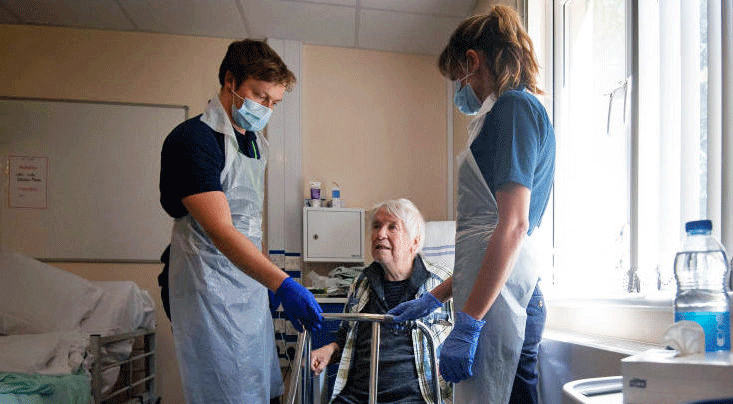Today Sajid Javid has announced that a new 10-year strategy for fighting ‘the war on cancer’ will be published later this year. The last cancer strategy was only published in 2019 as part of the NHS Long Term plan, which aimed for three-quarters of cancer to be spotted at an early stage by 2028. It was an ambitious goal in 2019 — before the pandemic, just over half of cancers were diagnosed at stages one or two — but now, it seems like an impossible one.
We know the pressure that the NHS is under. There are an estimated 35 million missed consultations still waiting to be carried out as a result of the pandemic, and the Health Secretary has already admitted that the government will fail to fulfil its election pledge to recruit 6000 additional full-time GPs by 2025.
Figures suggest that there have been 50,000 fewer cancer diagnoses in the UK since the start of the pandemic, and charities are worried that cancers with the lowest survival rates will be the worst affected. For example, ovarian cancer is notoriously difficult to diagnose as its symptoms (fatigue, bloating, indigestion, back pain) are all incredibly generic. Even before the pandemic ovarian cancer was usually diagnosed at a later stage, and its 10 year survival rate was only around 30%.
Given these challenges, the reality is that cancer care is never going to improve until we return to face-to-face GP appointments, and improve access to those appointments. According to a survey by Cancer Research, the most common reasons for people not seeing a GP are not wanting to overburden the healthcare system, and the difficulty in securing an appointment. The current Hunger Games-style battle over the phone at 8am every morning is not fit for purpose, and even if you do get through, the average wait time for a non-urgent appointment is 13 days.
Improving cancer care is far from a lost cause. There are hugely promising developments in cancer diagnostics: for example, smear tests that detect other early tumours, blood tests that pick up cancers with nonspecific symptoms, and the current NHS-Galleri trial that, if successful, could diagnose up to 50 cancers before symptoms even appear. Yet people still need to access primary care first if we are to make the most of these developments; I have written before, for instance, about the significant drop in the number of women attending smear tests (now at the lowest in a decade).
Part of the problem is the conflicting messaging. GP surgeries that fail to provide enough in-person care will lose access to additional funding, but on the flipside they are also still contractually obliged to offer and promote remote consultations. Virtual or telephone appointments may be effective and efficient for straightforward, routine cases, but we know that the majority of appointments are needed for patients with complex, chronic diseases such as diabetes.
However, there is also another factor at play, which is the guilt people feel about going to the doctor, or insisting on a face-to-face appointment, after two years of public health messaging telling us that we should ‘protect the NHS’. If Sajid Javid is serious about improving cancer care, then it’s time the NHS protected us instead.











Join the discussion
Join like minded readers that support our journalism by becoming a paid subscriber
To join the discussion in the comments, become a paid subscriber.
Join like minded readers that support our journalism, read unlimited articles and enjoy other subscriber-only benefits.
Subscribe